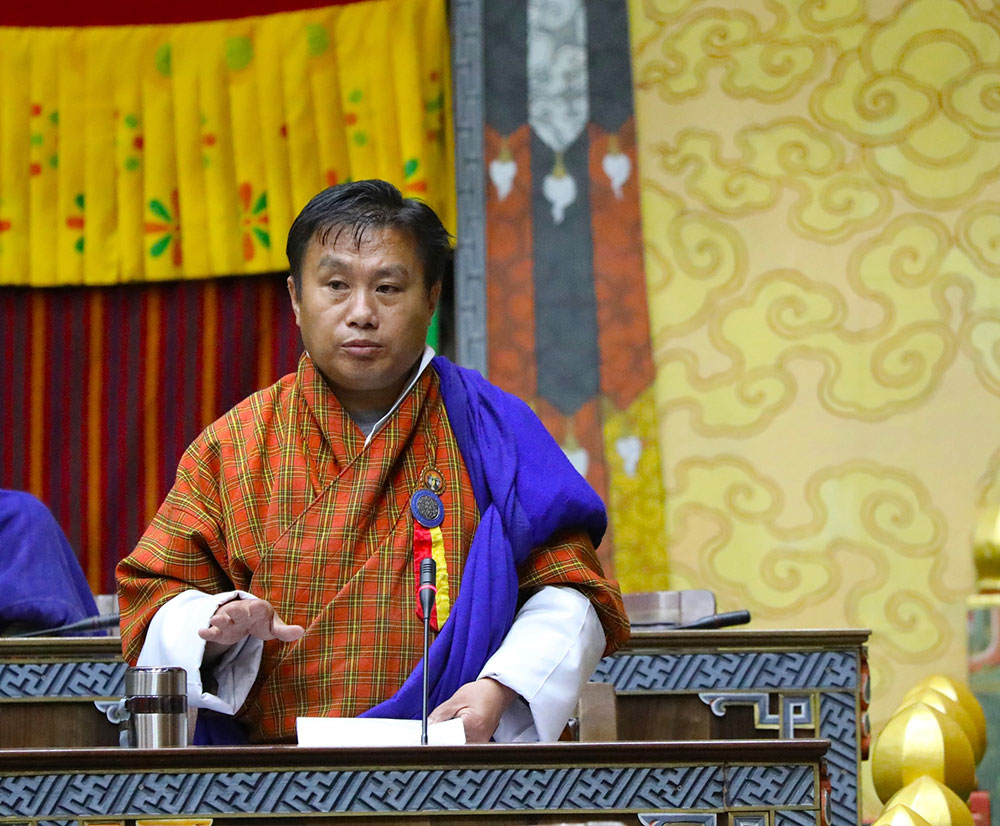Thukten Zangpo
With the majority of National Assembly members supporting the Pay Revision Bill 2023 yesterday, the revision is expected to come as proposed by the government.
From July 1 this year, it is likely that the public servants will draw 55 to 74 percent salary hike on their minimum pay scale. It also includes the leave encashment and leave travel concession to be prorated monthly.
Besides salary revision, the chairperson of the Economic and Finance Committee, Kinga Penjor said that the government should also look into inflation associated with the revision, practicality of civil servants’ individual work plan (IWP) to motivate and retain the professionals, and transfer related issues.
The salary revision could increase the overall purchasing power and potentially raise the demand for goods and services, he said, adding that the concerned agencies should strictly monitor the inflation.
The Committee recommended the Road Safety and Transport Authority to monitor and control inflation in taxi and bus fare. While the department of trade or office of consumer protection should play a proactive role in advocating and educating consumers on Consumer Protection Act to avoid unreasonable upsurge of price of goods and services, and monitor house rent as per Tenancy Act.
Kinga Penjor also said that the IWP has been cumbersome and demotivating factors for the civil servants, specifically in those in the professions of health and teaching.
On Opposition Leader Dorji Wangdi’s concern on the non-inclusion of the salary revision for the Druk Holding and Investments and state-owned enterprises in the Bill, Finance Minister Namgay Tshering said that these companies are guided by their own service rules and the government provides only operational or investment subsidies to the SOEs.
During the deliberation, MP for Bartsham-Shongphu, Passang Dorji, said that the highest attrition rate in civil servants is observed in P-category and asked for better remuneration.
However, Lyonpo Namgay Tshering said that the main objective of the salary revision is to meet the rising cost of inflation and the revision would not withhold the civil servants’ attrition rate. “Non-monetary incentives are necessary to retain civil servants.”
Given the high attrition rate in the teaching profession, MP for Khamaed-Lunana, Yeshey Dem, raised concerns on provision to regularise the contract teachers.
The House also discussed on the professional allowance for drungtshos to make at par to the doctors. However, the House did not support the concern. The Bill revised professional allowance for doctors to 55 to 80 percent from 45 to 60 percent.
The Committee’s recommendation to include a new section after section 47 on Professional Allowance for Aviation or Air Navigation and Aerodrome Services or Certified personnel as an amendment to the section 22 of the Pay Structure Reform Bill of Bhutan 2022 did not get the support of the House.
The House also directed the Committee to revisit its recommendation on the new section after section 47 on leave encashment in consultation with the government and the Royal Civil Service Commission and report back to the House on June 26.


